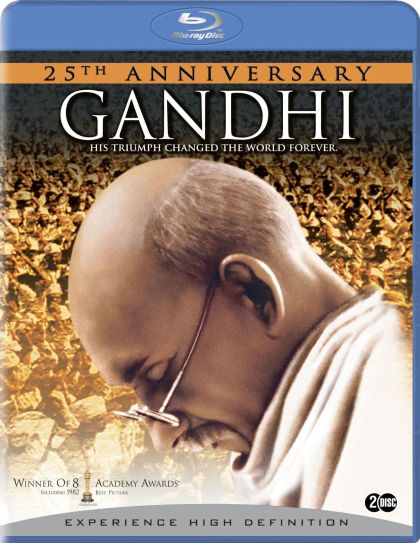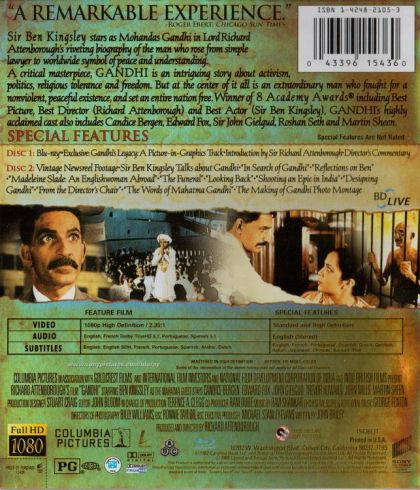Director Richard Attenborough tells with this epic, and elaborate produced film, the story of freedom and peace fighter Gandhi, the Indian who helped give Indians their independence. The film was nominated in eleven categories at the Academy Awards, winning eight in total.
In 1893, Gandhi is thrown off a South African train for being an Indian and traveling in a first class compartment. Gandhi realizes that the laws are biased against Indians and decides to start a non-violent protest campaign for the rights of all Indians in South Africa. After numerous arrests and the unwanted attention of the world, the government finally relents by recognizing rights for Indians, though not for the native blacks of South Africa. After this victory, Gandhi is invited back to India, where he is now considered something of a national hero. He is urged to take up the fight for India's independence from the British Empire. Gandhi agrees, and mounts a non-violent non-cooperation campaign of unprecedented scale, coordinating millions of Indians nationwide. There are some setbacks, such as violence against the protesters and Gandhi's occasional imprisonment. Nevertheless, the campaign generates great attention, and Britain faces intense public pressure. Too weak from World War II to continue enforcing its will in India, Britain finally grants India's independence. Indians celebrate this victory, but their troubles are far from over. Religious tensions between Hindus and Muslims erupt into nation-wide violence. Gandhi declares a hunger strike, saying he will not eat until the fighting stops. The fighting does stop eventually, but the country is divided. It is decided that the northwest area of India, and eastern part of India (current day Bangladesh), both places where Muslims are in the majority, will become a new country called Pakistan (West and East Pakistan respectively). It is hoped that by encouraging the Muslims to live in a separate country, violence will abate. Gandhi is opposed to the idea, and is even willing to allow Muhammad Ali Jinnah to become the first prime minister of India, but the Partition of India is carried out nevertheless. Gandhi spends his last days trying to bring about peace between both nations. He thereby angers many dissidents on both sides, one of whom finally gets close enough to assassinate him.
- Written by gavin (gunmasterM@hotmail.com)
The last fifty years of the life of Mahatma Gandhi leading to his assassination in 1948 is portrayed. In the late 1800's South Africa, then Indian-British attorney Mohandas K. Gandhi takes up the cause of fighting what he sees as racially discriminatory laws against colored people such as himself and other ethnic Indians. Being that South Africa is part of the British Empire, he is hoping that news of such in the British press will support his cause. Although violence is used against him by the authorities, his protests are only by peaceful means. Having made a name for himself as a motivator of peaceful action which he does not want confused with passivity, Gandhi returns to India in 1915, when he has now abandoned his western clothing for more basic self-made garb of shawls and loincloths. He is asked by prominent Indian figures of the day, such as Jawaharlal Nehru, Vallabhbhai Patel and Mohammad Ali Jinnah, to join the fight for Indian independence from the British, despite some within that group believing Gandhi's methods ineffective. Because of internal religious conflicts between the Hindus and minority Muslims among others, the British believe that an Indian self-government would lead to chaos, which to Gandhi is beside the point. But Gandhi's ability to rally the troops is enough to strike fear in the British controlled authorities, who do whatever they feel they need to quash his quiet revolution while trying not to make him appear the martyr. Even if Gandhi and his cohorts are able to achieve independence for their homeland, Gandhi must figure out how to control the dissent between the Hindus and the Muslims. Among those documenting the process are American journalist Vince Walker and American photojournalist Margaret Bourke-White, both on the most part sympathetic to Gandhi's cause.
- Written by Huggo
This acclaimed biographical drama presents major events in the life of Mohandas K. Gandhi, the beloved Indian leader who stood against British rule over his country. Dedicated to the concept of nonviolent resistance, Gandhi is initially dismissed by English officials, including the influential Lord Irwin, but eventually he and his cause become internationally renowned, and his gatherings of passive protest move India towards independence.
- Written by Jwelch5742
When Mohandas Gandhi first set foot in British India, he had already been to Britain and South Africa, and had created quite a stir for the betterment of the people. But in India, he realized that he had first to live the life of a peasant to understand what it is to be an Indian. This resolve will lead him to shed his westerners clothing, don a simple loincloth, mobilize awareness of local industry, lessen dependence on imported clothing and material, the historic Dandee march for withdrawal of the salt tax, a fast unto death to stop the virtual slaughter of British troops, and be imprisoned several times. His resolve was to work with stalwarts such as Mohammed Ali Jinnah, Sardar Valabhbhai Patel, Professor Gokhale, J.B. Kripalani, Maulana Azad, and Pandit Jawaharlal Nehru to ensure first of all to get the British to quit India, and then run an Indian Government under the Congress party. Gandhi will soon realize that it is not enough to be just an Indian, for India has many facets - Muslim, Hindu, Sikh, Jewish, and Christian. The British relied on these many facets as an excuse for their continuance as they wanted to ensure that the minorities are not oppressed. Concerned over the inroads made by Gandhi to unite the Hindus, Muslims, and all others under a common umbrella, the British invited Jinnah for talks, and it is here that a seed was laid for a separate country called Pakistan. When Gandhi came to know about this, he pleaded with Jinnah to unite the Muslims, even take over as the first Prime Minister with his choice of Muslim candidates for Parliament, but separatist Jinnah had already made up his mind. The World Wars of 1914 and 1944 having taken its toll on Europe, and on Britain in particular, the weary British finally decided to leave India in 1947 - not the India they had conquered - but an India that was ready to be divided in East Pakistan and West Pakistan. Now after the much awaited independence was the real test for Gandhi - a test that will make him or break him - as he started a fast unto death to try and stop the violence that was threatening to break out into a civil war.
- Written by rAjOo (gunwanti@hotmail.com)
Gandhi's character is fully explained as a man of nonviolence. Through his patience, he is able to drive the British out of the subcontinent. And the stubborn nature of Jinnah and his commitment towards Pakistan is portrayed.
SYNOPSIS
The story begins with the assassination of Mohandas K. "Mahatma" Gandhi in India in 1948. The following funeral procession is a long one and his body is conveyed on a jeep covered in flowers.
The story flashes back to Gandhi's early days as an attorney in the late 1800s in South Africa. He is thrown off a train for sitting in the first-class compartment despite possessing a ticket to be there. He later stages a non-violent protest in the center of town where, with several police officers and officials present, he burns work permits that all non-Afrikaners are required to carry and present to police when demanded. Gandhi's reasoning is that the permits are an unfair and oppressive symbol of Afrikaner rule over minorities. As he burns them, he is struck by a police officer on the hand. Though quite plainly in pain, Gandhi continues to burn the permits, his will overcoming the blows from the officer. He is finally knocked down, unable to continue his protest and is arrested.
When he's freed from jail, he meets a young American reporter, Walker, with whom he converses about the oppression of the masses by a handful of bureaucrats. While they walk, Gandhi is confronted by an angry youth (Daniel Day-Lewis in a bit part) and his friends. They demand that he pay them to walk down their street. Gandhi refuses in the face of obvious bigotry. When the young man's mother calls him inside, Gandhi and Walker continue down the street.
Gandhi travels to his home country of India. When he arrives there he is met by members of the press who know of his exploits in South Africa. They ask if he'll take up any political causes, especially those in opposition to the British rule of India. Gandhi politely refuses the requests, saying he's only going to his home city of Porbandar. His wife accompanies him. Gandhi's real plan is to organize a non-violent protest against Britain, knowing that millions of Indians will follow him. Very soon Gandhi realizes that the British rule of India is harsh and oppressive, having grown more so since he left to pursue his law degree and is growing worse each day.
One of Gandhi's first public protests is against the British textile industry. He urges his followers to weave their own cloth for clothing and other needs and burn the British cloth they've been forced to buy and wear for decades. However, many Indians, both Muslim and Hindu, stage more aggressive protests. The crowds become angry mobs when they are attacked by the police. Gandhi appears inwardly angry that his message has been misunderstood.
He is later arrested by the British on charges of inciting the violence of his people. When he stands before the judge -- who himself stands in respect when Gandhi enters the court chamber -- he refuses to comply with the judge's decree to merely impose a fine on the defendant. The judge, though showing great respect for the defendant, sentences Gandhi to serve time in prison for several years.
In Amritsar, a city in Northern India, a group of Indian citizens gather in the Jallianwala Bagh garden to protest an unfair town curfew. Though the protest was peaceful, a British general, Reginald Dyer, orders his troops into the garden. They take up firing positions in the courtyard. When one of his lieutenants suggests that the protest is peaceful, Dyer says that the people have "had their warning" and commands his troops to open fire. Thousands, including women and children, are killed.
A trial is held by the Hunter Commission, comprised of British and Indian officials. Dyer himself testifies and is at first quite proud and defiant, claiming he wished to "inflict a lesson that would be felt through all of the India". When asked if he'd ordered his troops to fire at the thickest part of the crowd, he says yes. He also states he would have used the machine gun on the tank that accompanied his troops (it was unable to fit through the narrow passage to the garden). When an Indian attorney asks Dyer if he attempted to help the wounded in any way, he becomes agitated and says he would have. A British official asks him how a wounded child that had been shot would be able to approach him for help. Dyer is silent.
Nevertheless, the campaign generates great attention, and Britain faces intense public pressure. Gandhi, Jawarlalhal Nehru & several other officials representative of the Indian state and it's people, Hindu, Muslim and other cultures alike, meet with British nationals. Gandhi tells them that they are "masters in someone else's home" and they should leave India forever. The Brits argue that without their rule, India will likely tear itself apart. Gandhi retorts that there will be problems but they will be India's problems, not the British.
Though Gandhi continues his wish for civil disobedience, riots continue to break out. Gandhi stages a personal fast as a means of protest. Though his action is successful, violence continues. Gandhi later stages his most famous protest: he marches 240 miles from his home to the ocean to make salt in defiance of British regulations. The march is a great success and further disrupts British rule. Gandhi continues his diplomacy with the other heads of the Indian state to insure that when India gains it's sovereignty that all the faiths of the country, chiefly Hindu and Muslim, will live together peacefully.
After World War II, Britain finally grants Indian independence. Indians celebrate this victory, but their troubles are far from over. The country is subsequently divided by religion. It is decided that the northwest region and the eastern part of India (current-day Bangladesh) around Calcutta, both places where Muslims are in the majority, will become a new country called Pakistan. It is hoped that by encouraging the Muslims to live in a separate country, violence will abate. Gandhi is opposed to the idea, and is even willing to allow Muhammad Ali Jinnah to become the first prime minister of India, but the Partition of India is carried out nevertheless. Religious tensions between Hindus and Muslims erupt into nationwide violence. Horrified, Gandhi declares another hunger strike in the city of Calcutta, saying he will not eat until the fighting stops.The fighting does stop eventually. While weak and barely able to speak, he is confronted by a Hindu man who confesses that while enraged over the death of his young son at the hands of Muslims, he killed a young Muslim boy himself. Gandhi tells the man how to achieve forgiveness: he must find a young boy whose own parents have been killed and raise the boy as his own -- but the boy must be a Muslim and the man must raise him as one.
Gandhi spends his last days trying to bring about peace between both nations. He thereby angers many protesters on both sides, one of whom (Godse) is involved in a conspiracy to assassinate him. As Godse shoots Gandhi in a scene recalling the opening, the film cuts to black and Gandhi is heard in a voiceover, saying "Oh, God!" The audience then sees Gandhi's cremation; the film ending with a scene of Gandhi's ashes being scattered on the holy Ganga. As this happens, viewers hear Gandhi in another voiceover from earlier in the film:
"When I despair, I remember that all through history the way of truth and love has always won. There have been tyrants, and murderers, and for a time they can seem invincible, but, in the end, they always fall. Think of it. Always."

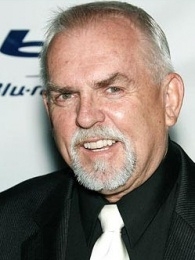

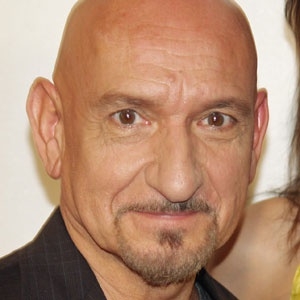
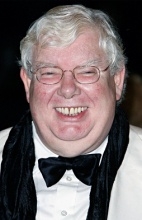
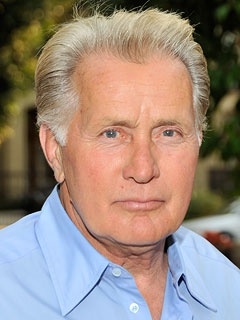
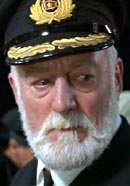


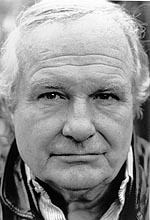
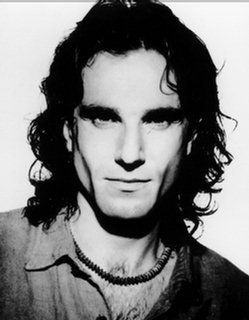
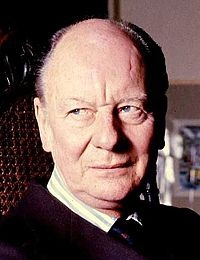
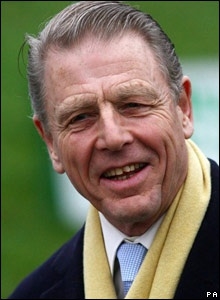
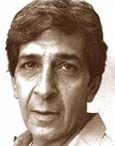
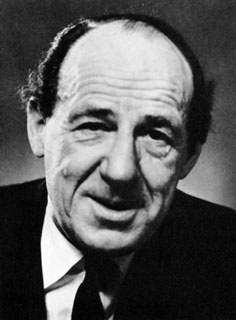
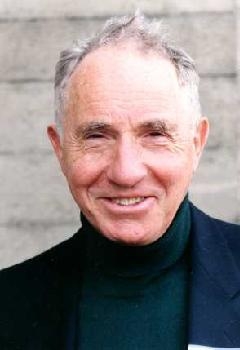
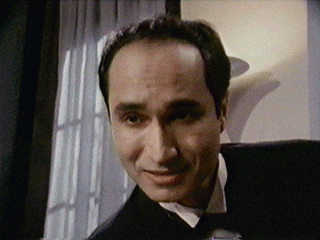

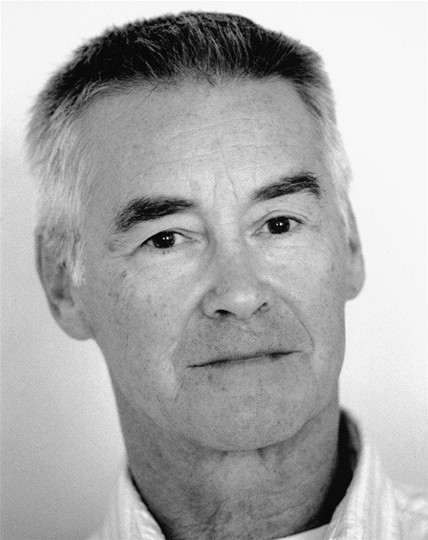
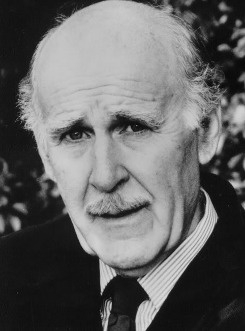
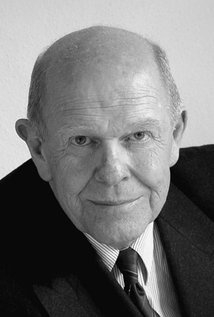
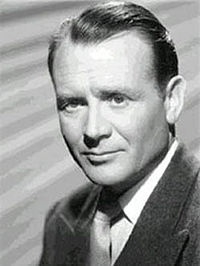
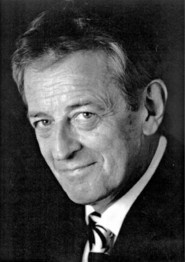
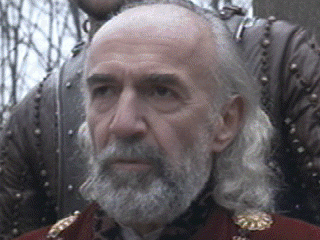
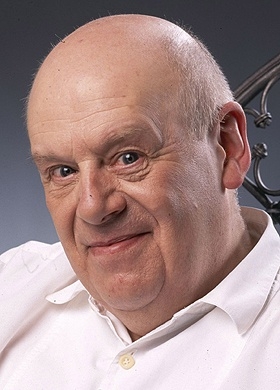
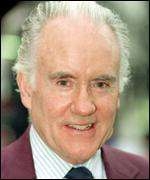



 English
English  Nederlands
Nederlands  Deutsch
Deutsch  Français
Français  Español
Español  Magyar
Magyar  српски
српски  Dansk
Dansk  Italiano
Italiano  Svenska
Svenska  Slovenčina
Slovenčina  Português
Português 
